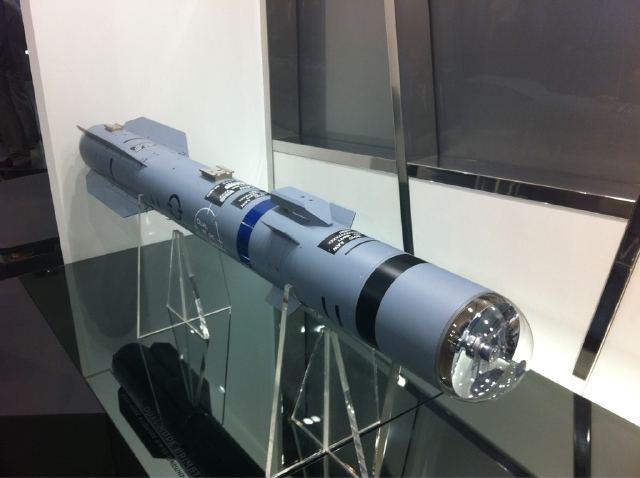I first came across this term when I
was reading up on our local arms manufacturer, MBDA, whose main line
is a chilling range of missiles. There's an early use of the phrase
in a 1984 article in which we can read: ' "Fire-and-forget,"
also known as "launch-and-leave" or "shoot-and-scoot,"
depending on who is pulling the trigger, refers to weapons that need
no further intervention once fired. ' (see
http://cs.stanford.edu/people/eroberts/cs201/projects/autonomous-weapons/articles/fire-and-forget.txt
)
 |
| Brimstone missile, produced by MBDA, at the DSEi arms fair in London, 2011 |
High-tech weaponry of the 'fire and
forget' kind is attractive to those involved in warfare; as Wikipedia
states... [such a weapon] '... can hit its target without the
launcher being in line-of-sight of the target. This is an important
property for a guided weapon to have, since a person or vehicle that
lingers near the target to guide the missile (using, for instance, a
laser designator) is vulnerable to attack and unable to carry out
other tasks.' (http://en.wikipedia.org/wiki/Fire_and_forget
)
But what else lies in that term, 'fire
and forget'? It is a profoundly troubling concept in many ways,
hinting at an over-reliance on technology and disregard for the human
consequences of that technology's use. This is probably at the heart
of the level of concern and opposition to the use of Drones. As
touched on in my previous piece, the ability to distance oneself from
the 'enemy' emotionally (to forget their humanity) makes it easier to
take their life. The trouble is, those who are on the receiving end
cannot forget, and each time a life is lost through violence there
will be another legacy of hurt. This won't inevitably lead to more
violence, but it's clear that it can - and often does - feed into such a cycle.
In place of fire and forget, we need to
respect and remember the worth of all human beings, to remember and
learn from the past... and to use technology to reach out rather than
to set coordinates.